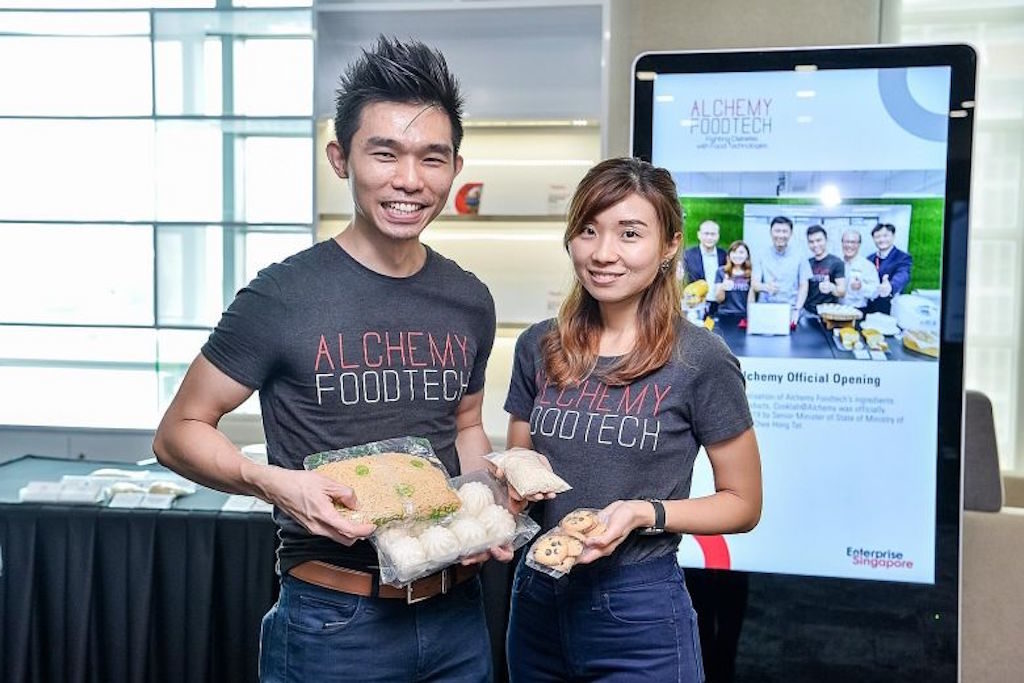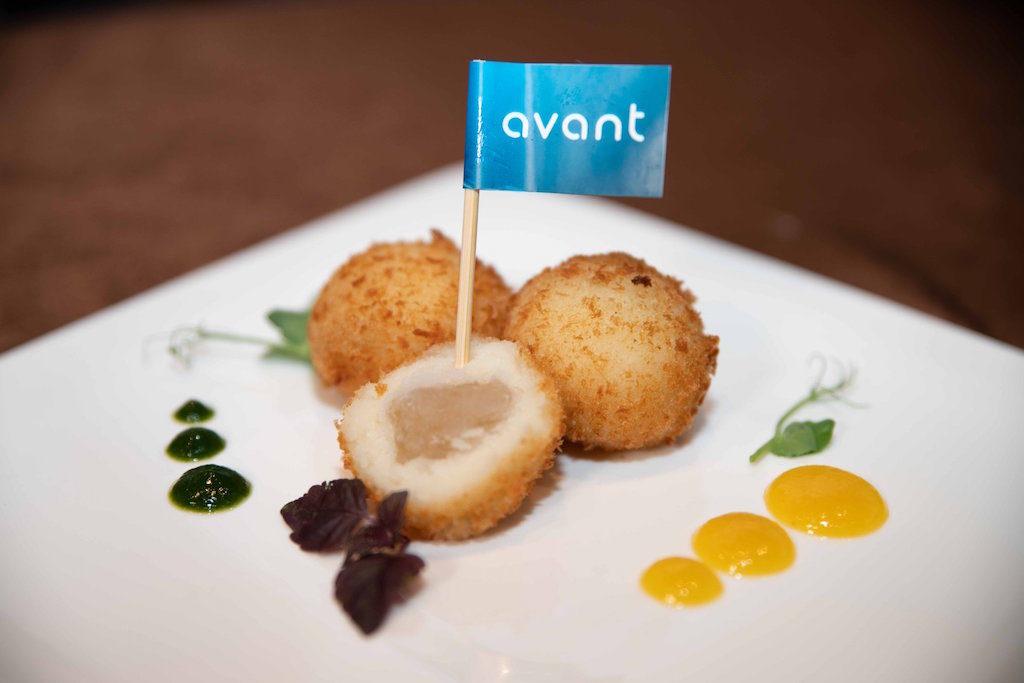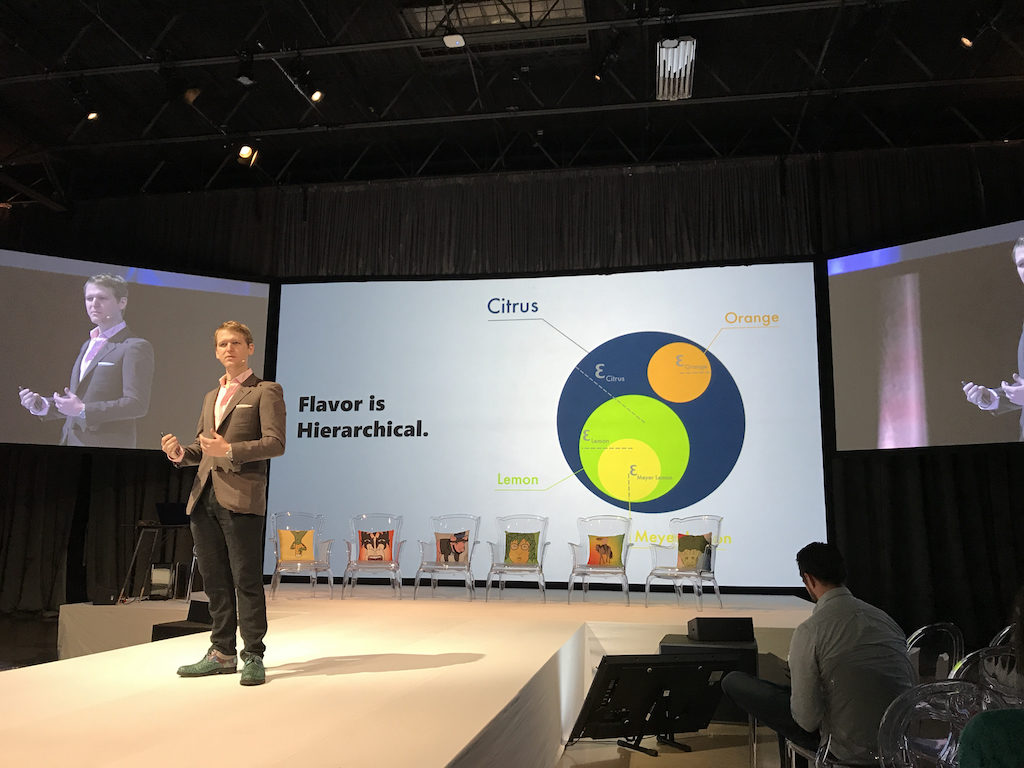6 Mins Read
The Food’s Future Summit took place on the 11th – 12th October, showcasing the most innovative food industry players as well as keynotes, exclusive launches and panel talks about solutions to our global food system. At our current rate, we may only be able to feed half of the global population by 2050 – making new technologies and innovations even more important if we are to shift towards a more sustainable food ecosystem. This year, among the many startups spotlighted at the Summit, there were 5 that stood out. Below is our rundown these 5 startups, what problems they address and why they are different.
HakkoBako

What do they do? HakkoBako is a food technology or “agrifoodtech” startup that uses a smart fermentation device with an IoT (“internet of things”) component to help deliver consistent fermentation results. The device, which is the first of its kind, tracks and controls temperature and humidity and is aimed at food service/catering companies, food factories and restaurants.
Where they are based? They are based in Hong Kong, and are currently running their prototype programme in Zhongshan, China.
Why are they cool? Fermentation is a notoriously tricky science, with temperature, humidity levels and other factors making it difficult for chefs to control for consistency, which is why many refrain from using it, especially for mass food production. Hakko Bakko’s device makes it easy and simple for chefs to create the same standout flavours during fermentation, from everything like coffee and beer to yogurt and miso, thereby unlocking the power of fermented foods at scale.
Geb Impact Technology

What do they do? Geb Impact Technology (Geb) is a biotechnology startup that cultivates microalgae for use in many lifestyle products such as nutraceuticals, skincare and food supplements.
Where they are based? Geb is Hong Kong-based. They have a pilot site in Sheung Shui where the technology for homegrown microalgae is being developed.
Why are they cool? As a protein source, algae can barely be beaten in terms of nutritional profile and agricultural carbon footprint. Microalgae are one of the fastest growing plant cells on our planet, needing only sunlight and nutrients to grow and are one of the best source of protein from plants out there, so it has the potential to be used in many alternative plant protein products, as well as enhance existing foods. Geb cultivates selected microalgae in different ways to suit different industries, and they are testing applications in plant-based skincare cosmetics too.
Alchemy FoodTech

What do they do? Alchemy FoodTech is a startup that combines biotechnology and medical technology into everyday foods with a mission to fight the growing diabetes crisis by helping to lower the GI levels of popular foods. Their star product, dubbed “5ibrePlus”, is a gluten-free and vegan ingredient product (available in powder or grain form) that can be incorporated into staple foods (like white rice or white flour) in order to effectively manage food-related diseases like diabetes.
Where they are based? Alchemy FoodTech is based in Singapore.
Why are they cool? Adding their 5ibrePlus to white rice lowers the GI from high to medium and increases the fibre content, which is a total game changer, given that Asia is facing a rising obesity and diabetes crisis. The latter has become an epidemic in Alchemy’s home nation, with 1 Singaporeans expected to be diabetic by 2050. The company hopes to enable the general public to better control their blood glucose levels without changing the sensory properties of the food. This is crucial because certain Asian dishes work best from a taste standpoint with refined grains like white rice so it’s hard to get mass adoption of whole grains like brown rice. Alchemy is also looking to working to incorporate this technology in other refined staple foods like white bread and noodles.
Avant Meats

What do they do? Avant Meats is a food tech startup developing cellular based fish and seafood products grown in controlled laboratories. Their initial offering, set for 2023, will be fish meat and fish maw, and they are targeting seafood eaters who wish to consume more sustainably. Avant Meats hopes to develop other cell-based Chinese aquatic delicacies in the future.
Where they are based? Avant Meats is Hong Kong-based but also has operations in the Greater Bay Area of China. They hope to launch in Hong Kong and Guangdong, and potentially look at Singapore and Malaysia too.
Why are they cool? China and Hong Kong tops the list when it comes to seafood consumption, and this market is set to continue to grow. Because half of the global seafood comes from wild catch, it causes exploitation of marine ecosystems and extinction of species. Chinese demand for fish maw has left behind an unfortunate environmental impact. The swim bladder trade, much of it passing through Hong Kong and China, has seriously threatened some fish species. According to the Environmental Investigation Agency (EIA), the two species targeted for their bladder – Bahaba and Totoba – are now being driven to near extinction. Avant Meats uses cellular technology and tissue engineering under lab conditions to grow and replicate fish products such as fish maw from a small sample of swim bladder cells. While there are other companies working on cell-based meat, the development of cultured fish products will be able to cater to local Chinese audiences and their tastes – maintaining the embedded food culture without further causing biodiversity and environmental damage.
Gastrographs

What do they do? Gastrographs is a machine learning and artificial intelligence (AI) platform that hopes to predict consumer food preferences for food manufacturers. Through their technology that quantifies the sensory profile of products, the flavour, aroma and texture of products can be optimised for their target demographic.
Where they are based? Gastrographs is based in New York, United States.
Why are they cool? Predictive analytics – collecting data about how people perceive flavours and using algorithms to predict how they will react to new products – is useful for the F&B industry to create products suited to different cultures. This has the potential to not only create better brands and products, but also to reduce food waste and encourage more industry producers to cater to the growing plant-based and sustainability-minded market.
Lead image courtesy of Food’s Future.




